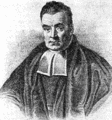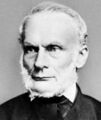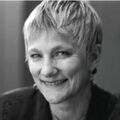Template:Selected anniversaries/April 6: Difference between revisions
No edit summary |
No edit summary |
||
| Line 8: | Line 8: | ||
File:Supplice de 9 émigrés Octobre 1793.jpg|link=French Revolution (nonfiction)|1793: During the [[French Revolution (nonfiction)|French Revolution]], the Committee of Public Safety becomes the executive organ of the republic. | File:Supplice de 9 émigrés Octobre 1793.jpg|link=French Revolution (nonfiction)|1793: During the [[French Revolution (nonfiction)|French Revolution]], the Committee of Public Safety becomes the executive organ of the republic. | ||
||1810: Philip Henry Gosse born ... biologist and academic ... Aquaria | ||1810: Philip Henry Gosse born ... biologist and academic ... Aquaria. Pic. | ||
||1829: Niels Henrik Abel dies ... mathematician and theorist. | ||1829: Niels Henrik Abel dies ... mathematician and theorist. Pic. | ||
||1851: Guillaume Bigourdan dies ... astronomer and academic. | ||1851: Guillaume Bigourdan dies ... astronomer and academic. Pic. | ||
||1864: William Bate Hardy born ... biologist and academic. | ||1864: William Bate Hardy born ... biologist, food scientist, and academic. Pic. | ||
File:Rudolf Clausius.jpg|link=Rudolf Clausius (nonfiction)|1864: Physicist and crime-fighter [[Rudolf Clausius (nonfiction)|Rudolf Clausius]] publishes new theory of thermodynamics which uses [[Gnomon algorithm]] principles to explain how the monster known as [[Ultravore]] can eat anything without gaining weight. | File:Rudolf Clausius.jpg|link=Rudolf Clausius (nonfiction)|1864: Physicist and crime-fighter [[Rudolf Clausius (nonfiction)|Rudolf Clausius]] publishes new theory of thermodynamics which uses [[Gnomon algorithm]] principles to explain how the monster known as [[Ultravore]] can eat anything without gaining weight. | ||
| Line 20: | Line 20: | ||
||1869: Celluloid is patented. | ||1869: Celluloid is patented. | ||
||1886: Walter Dandy born ... physician and neurosurgeon. | ||1886: Walter Dandy born ... physician and neurosurgeon. Pic. | ||
File:Pieter Rijke.jpg|link=Pieter Rijke (nonfiction)|1889: Physicist and crime-fighter [[Pieter Rijke (nonfiction)|Petrus Leonardus Rijke]] invents the Rijke tube, which neutralizes [[Crimes against physical constants|crimes against audio constants]] by creating a self-quantumizing standing wave. | File:Pieter Rijke.jpg|link=Pieter Rijke (nonfiction)|1889: Physicist and crime-fighter [[Pieter Rijke (nonfiction)|Petrus Leonardus Rijke]] invents the Rijke tube, which neutralizes [[Crimes against physical constants|crimes against audio constants]] by creating a self-quantumizing standing wave. | ||
||1890: Anthony Fokker born ... engineer and businessman, founded Fokker Aircraft Manufacturer. | ||1890: Anthony Fokker born ... engineer and businessman, founded Fokker Aircraft Manufacturer. Pic. | ||
||1903: Harold Eugene Edgerton born ... engineer and academic. Pic. | ||1903: Harold Eugene Edgerton born ... engineer and academic. Pic. | ||
| Line 42: | Line 42: | ||
||1942: Bradley Allen Fiske dies ... officer in the United States Navy who was noted as a technical innovator. During his long career, Fiske invented more than a hundred and thirty electrical and mechanical devices,[1] with both naval and civilian uses, and wrote extensively on technical and professional issues; The New Yorker called him "one of the notable naval inventors of all time." One of the earliest to understand the revolutionary possibilities of naval aviation, he wrote a number of books of important effect in gaining a wider understanding of the modern Navy by the public. Pic. | ||1942: Bradley Allen Fiske dies ... officer in the United States Navy who was noted as a technical innovator. During his long career, Fiske invented more than a hundred and thirty electrical and mechanical devices,[1] with both naval and civilian uses, and wrote extensively on technical and professional issues; The New Yorker called him "one of the notable naval inventors of all time." One of the earliest to understand the revolutionary possibilities of naval aviation, he wrote a number of books of important effect in gaining a wider understanding of the modern Navy by the public. Pic. | ||
||1944: Rose O'Neill dies ... cartoonist, illustrator, artist, and writer. | ||1944: Rose O'Neill dies ... cartoonist, illustrator, artist, and writer. Pic. | ||
File:Enrico Fermi 1943-49.jpg|link=Enrico Fermi (nonfiction)|1946: [[Enrico Fermi (nonfiction)|Enrico Fermi]] discovers new class of [[Gnomon algorithm functions]] which detect and prevent [[crimes against mathematical constants]]. | File:Enrico Fermi 1943-49.jpg|link=Enrico Fermi (nonfiction)|1946: [[Enrico Fermi (nonfiction)|Enrico Fermi]] discovers new class of [[Gnomon algorithm functions]] which detect and prevent [[crimes against mathematical constants]]. | ||
| Line 48: | Line 48: | ||
||1952: Rudolf Walter Ladenburg dies ... atomic physicist. Pic. | ||1952: Rudolf Walter Ladenburg dies ... atomic physicist. Pic. | ||
||1961: Jules Bordet dies ... microbiologist and immunologist, Nobel Prize laureate. | ||1961: Jules Bordet dies ... microbiologist and immunologist, Nobel Prize laureate. Pic. | ||
||1963: Otto Struve dies ... astronomer and academic. | ||1963: Otto Struve dies ... astronomer and academic. Pic. | ||
||1965: Launch of Early Bird, the first commercial communications satellite to be placed in geosynchronous orbit. | ||1965: Launch of Early Bird, the first commercial communications satellite to be placed in geosynchronous orbit. | ||
| Line 70: | Line 70: | ||
||2004: Alexander Yakovlevich Lerner dies ... scientist and Soviet refusenik. Cybernetics. Pic: https://ru.wikipedia.org/wiki/%D0%9B%D0%B5%D1%80%D0%BD%D0%B5%D1%80,_%D0%90%D0%BB%D0%B5%D0%BA%D1%81%D0%B0%D0%BD%D0%B4%D1%80_%D0%AF%D0%BA%D0%BE%D0%B2%D0%BB%D0%B5%D0%B2%D0%B8%D1%87 | ||2004: Alexander Yakovlevich Lerner dies ... scientist and Soviet refusenik. Cybernetics. Pic: https://ru.wikipedia.org/wiki/%D0%9B%D0%B5%D1%80%D0%BD%D0%B5%D1%80,_%D0%90%D0%BB%D0%B5%D0%BA%D1%81%D0%B0%D0%BD%D0%B4%D1%80_%D0%AF%D0%BA%D0%BE%D0%B2%D0%BB%D0%B5%D0%B2%D0%B8%D1%87 | ||
||2012: Fang Lizhi dies ... astrophysicist and academic. | ||2012: Fang Lizhi dies ... astrophysicist and academic. Pic. | ||
File:Dennis Paulson of Mars closeup.jpg|link=Dennis Paulson of Mars|2017: Reality television show [[Dennis Paulson of Mars]] wins Pulitzer Prize for "inspiring humanity to reach for the stars." | File:Dennis Paulson of Mars closeup.jpg|link=Dennis Paulson of Mars|2017: Reality television show [[Dennis Paulson of Mars]] wins Pulitzer Prize for "inspiring humanity to reach for the stars." | ||
</gallery> | </gallery> | ||
Revision as of 15:50, 22 January 2019
1528: Painter, engraver, and mathematician Albrecht Dürer dies. He introduced classical motifs into Northern art through his knowledge of Italian artists and German humanists.
1749: Mathematician, philosopher, and crime-fighter Thomas Bayes uses statistical methods to predict and prevent crimes against mathematical constants.
1793: During the French Revolution, the Committee of Public Safety becomes the executive organ of the republic.
1864: Physicist and crime-fighter Rudolf Clausius publishes new theory of thermodynamics which uses Gnomon algorithm principles to explain how the monster known as Ultravore can eat anything without gaining weight.
1889: Physicist and crime-fighter Petrus Leonardus Rijke invents the Rijke tube, which neutralizes crimes against audio constants by creating a self-quantumizing standing wave.
1926: American comic book artist Gil Kane born.
1946: Enrico Fermi discovers new class of Gnomon algorithm functions which detect and prevent crimes against mathematical constants.
1992: Writer Isaac Asimov dies. He was considered one of the "Big Three" science fiction writers during his lifetime.
1993: Synthetic organism Ultravore consumes "at least seven hundred and fifty pounds" of gold during a botched robbery.
2003: Computer scientist Anita Borg dies. She founded Anita Borg Institute for Women and Technology.
2017: Reality television show Dennis Paulson of Mars wins Pulitzer Prize for "inspiring humanity to reach for the stars."










